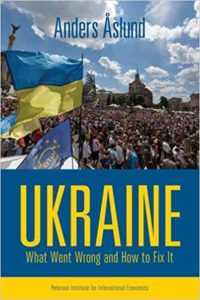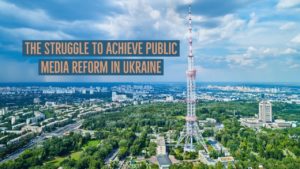 Supporting Ukraine’s democratization is a strategic priority in efforts to counter Russian influence, observers suggest.
Supporting Ukraine’s democratization is a strategic priority in efforts to counter Russian influence, observers suggest.
Ukraine has contended with enormous challenges since the Maidan, and has made real progress. Ukrainians and Westerners alike cannot afford to rest, however, notes Ian Bond, director of foreign policy at the Centre for European Reform. Five years is long enough for a lot to happen in politics; but not long enough for the fundamental changes needed for Ukraine to break free of Russia’s malign influence and its own past, he writes:
Above all, it is still an independent state: when Russian forces seized Crimea in February 2014 with hardly a shot fired, and then took over cities in eastern Ukraine disguised as ‘separatists’, it looked as though the country might break apart. It has not. More than 10,000 people have been killed in fighting in the Donbas, Ukraine’s industrial heartland, and the Russians and their local proxies still hold the two biggest cities, Donetsk and Luhansk. But Russian president Vladimir Putin, who suggested in the spring of 2014 that Russia might re-create the historical region of ‘Novorossiya’ in southern and eastern Ukraine, has been unable to add to his territorial gains.
Ukrainian-Americans are commemorating the fifth anniversary of the end of the EuroMaidan Revolution, which ended after security forces shot dead more than 100 demonstrators in Kyiv in February 2014, the same month that Kremlin-backed President Viktor Yanukovych fled power, the Kyiv Post reports:
The biggest diaspora organization in the U.S., the Ukrainian Congress Committee of America, held its main event to mark the anniversary at the Cannon Office Building in the nation’s capital on Feb. 8. The speakers, including members of Congress, talked about various aspects of the EuroMaidan and how it dramatically changed Ukraine’s course.

Credit: VOA
The National Endowment for Democracy’s Carl Gershman talked about the organization’s considerable work in Ukraine spearheaded by NED’s vice president, the late Nadia Diuk, a U.S. citizen, born in the U.K of Ukrainian origin. The sacrifice of those who died on the EuroMaidan must inspire Ukrainians to continue “to build a sense of responsibility in civil society,” he added. “Why did that Heavenly Hundred die if not for the freedom of Ukraine?”
Will Ukraine’s Euromaidan democrats make the transition from protest to politics, and enter parliament and government?
 A recent forum of democratic forces in Kyiv may have finally started the formation of a broad pro-reform coalition of largely untainted anti-corruption activists, analyst Andreas Umland writes for New Eastern Europe.
A recent forum of democratic forces in Kyiv may have finally started the formation of a broad pro-reform coalition of largely untainted anti-corruption activists, analyst Andreas Umland writes for New Eastern Europe.
More progress had been made since the EuroMaidan than in the previous decades since 1991 independence in building civil society, the NED’s Gershman said.
“We know there are problems: stalled structural reforms, Russian disinformation, Ukraine has been fighting a two-front war since the EuroMaidan – a hot war in the east and then a war against corruption and for democracy in society and she has to win on both of these fronts.”







